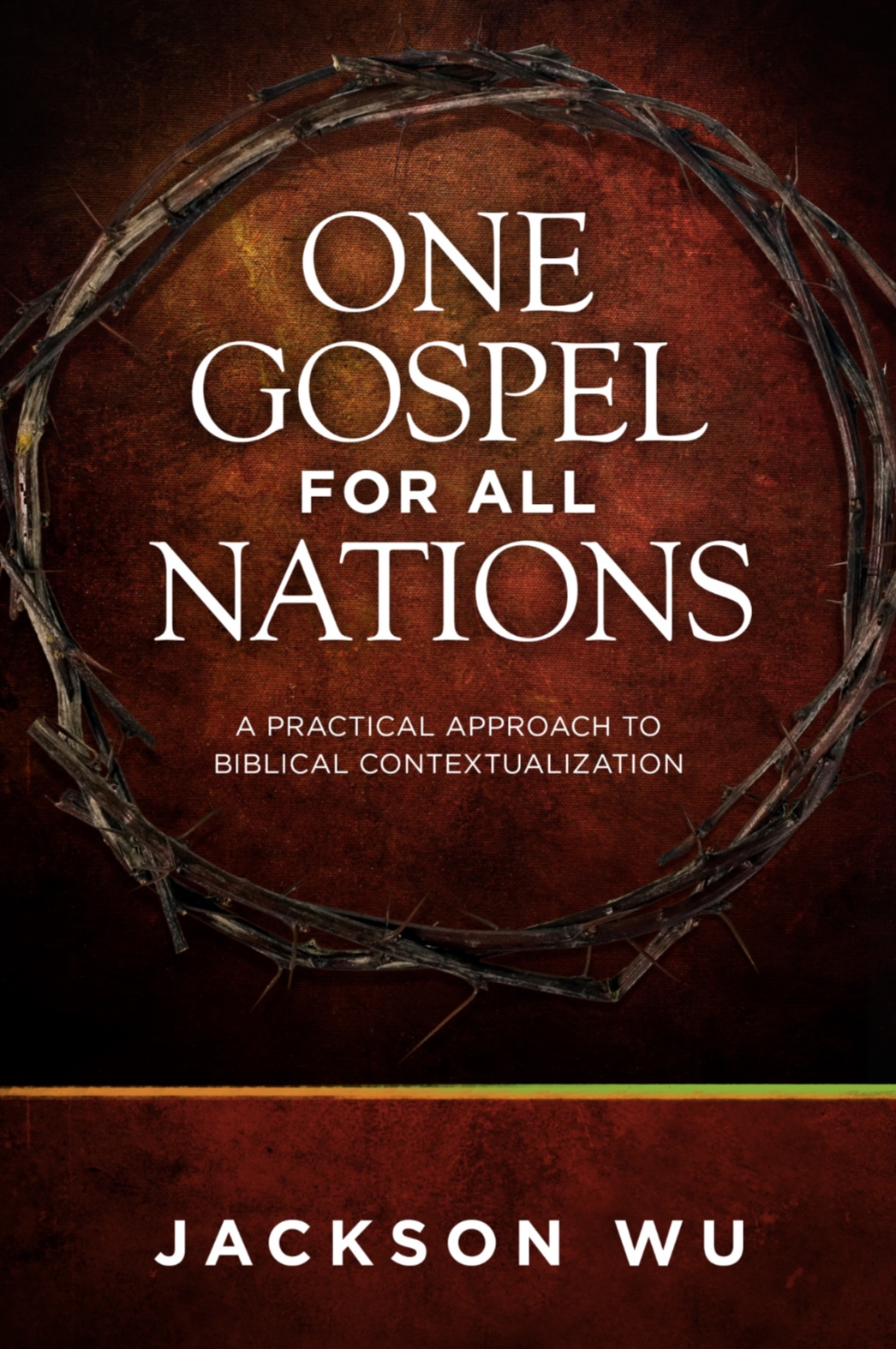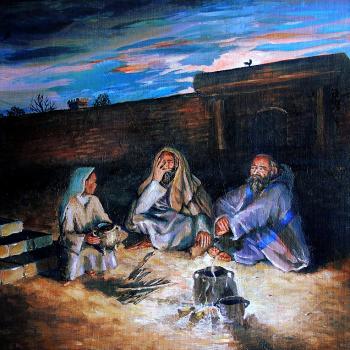In this post, I will explain why Gal 3:8 says that God’s covenant with Abraham is the gospel.
I will simply outline how I understand the gospel from the perspective of the Abrahamic covenant. For a fuller discussion of the gospel and its framework (i.e. the themes of creation, covenant, kingdom), you can check out One Gospel for All Nations.
The Promises to Abraham
Let me first cite a few passages the state or restate God’s promises to Abraham. It is important to recall the prior context. In Gen 11, we find Babel seeking to make a name for themselves (11:4). Additionally, in Gen 3, 6–8, the world suffers a curse rather than blessing. We should note the contrast between this previous context and the promises that immediately follow in chapter 12.
Gen 12:2–3, “And I will make of you a great nation, and I will bless you and make your name great, so that you will be a blessing. I will bless those who bless you, and him who dishonors you I will curse, and in you all the families of the earth shall be blessed.”
Gen 17:4–8, ““Behold, my covenant is with you, and you shall be the father of a multitude of nations. No longer shall your name be called Abram, but your name shall be Abraham, for I have made you the father of a multitude of nations. I will make you exceedingly fruitful, and I will make you into nations, and kings shall come from you. And I will establish my covenant between me and you and your offspring after you throughout their generations for an everlasting covenant, to be God to you and to your offspring after you. And I will give to you and to your offspring after you the land of your sojournings, all the land of Canaan, for an everlasting possession, and I will be their God.”
Gen 22:17–18, “I will surely bless you, and I will surely multiply your offspring as the stars of heaven and as the sand that is on the seashore. And your offspring shall possess the gate of his enemies, and in your offspring shall all the nations of the earth be blessed, because you have obeyed my voice.”
These promises are repeated in various other places as well.
A Summary of the Abrahamic Gospel
How can we summarize the Abrahamic gospel? I will use the gospel’s three framework themes (creation, covenant, and kingdom), which I discuss in more detail in One Gospel for All Nations.
 At creation, God made the world to be His kingdom and a Temple. This is where He would dwell with his people, who are his image-bearers. Rather than bringing blessing to the world, the human family experienced curse. They become alienated from God and one another.
At creation, God made the world to be His kingdom and a Temple. This is where He would dwell with his people, who are his image-bearers. Rather than bringing blessing to the world, the human family experienced curse. They become alienated from God and one another.
The Creator plans to rectify the world through a covenant, made with Abraham for the sake of all nations. God would bless Abraham with a worldwide family. This promise involved limitless seed and limitless land.
In Rom 4, we discover that Abraham’s “seed” consist of all who follow Christ, from among all nations and not simply ethnic Israel (cf. Rom 9:6–8).
N. T. Wright comments on the land-promise:
What then about the very specific, and often-repeated, promise about the Land? It has been universalized. ‘The promise to Abraham and his seed that he would inherit the world’, says Paul in verse 13. Inherit the world? That evokes the royal promise of Psalm 2; but other Jewish texts had already applied it to Abraham, had already seen that the Abrahamic promise, because it concerned the reversal of Genesis 3 and 11, must envisage not simply one small strip of territory but actually the entire world, of which Abraham’s God was after all the creator. (Paul and the Faithfulness of God, 849–50)
In short, the seed and land promises corresponds to God’s plan to make a royal priesthood than spans the entire world.
This covenant entails a kingdom. The promises are inherently royal, both in original context and via sheer implication. Keep in mind what ancient Jewish monotheism implied in its biblical, historical, and cultural context. (I have written a series on this previously).
Abraham’s God claims to be the Creator, capable of blessing the entire world (and not merely a single people group). This is a claim to kingship (cf. Is 43:15, “I am the LORD, your Holy One, the Creator of Israel, your King”).
For Abraham to believe that God would fulfill his covenant promises is tantamount to declaring that this God is the Creator. Thus, he affirms God’s sovereignty or kingship over the entire world.
Observe how Paul goes on to explain Abraham’s faith in Rom 4:16–17. Especially notice v. 17.
That is why it depends on faith, in order that the promise may rest on grace and be guaranteed to all his offspring– not only to the adherent of the law but also to the one who shares the faith of Abraham, who is the father of us all, 17 as it is written, “I have made you the father of many nations”– in the presence of the God in whom he believed, who gives life to the dead and calls into existence the things that do not exist.
In effect, we are called to believe the exact same promises that Abraham believed. The Creator God will give life to that which is lifeless (i.e. resurrection). He will do this by remaking the human family, consisting of all nations. Rather than being slaves to sin (whose wage is death), this family serves God alone as king (cf. Rom 6:22).
In kingdom language, the Abrahamic covenant points our attention to a king, a people, and a territory. The Creator alone reigns. He has restored His royal family from among all nations. The entire world is the realm of his rule.
(This post is part of a series introducing my new book One Gospel for All Nations: A Practical Approach to Biblical Contextualization. For other posts in the series, click here.)
Photo Credit: melodi2 via FreeImages.com














